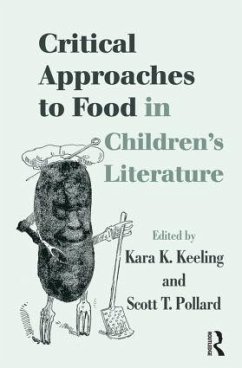
Food and Age in Europe, 1800-2000
Versandkostenfrei!
Versandfertig in 6-10 Tagen
46,99 €
inkl. MwSt.
Weitere Ausgaben:

PAYBACK Punkte
23 °P sammeln!
People eat and drink very differently throughout their life. Each stage has diets with specific ingredients, preparations, palates, meanings and settings. Moreover, physicians, authorities and general observers have particular views on what and how to eat according to age. All this has changed frequently during the previous two centuries. Infant feeding has for a long time attracted historical attention, but interest in the diets of youngsters, adults of various ages, and elderly people seems to have dissolved into more general food historiography. This volume puts age on the agenda of food hi...
People eat and drink very differently throughout their life. Each stage has diets with specific ingredients, preparations, palates, meanings and settings. Moreover, physicians, authorities and general observers have particular views on what and how to eat according to age. All this has changed frequently during the previous two centuries. Infant feeding has for a long time attracted historical attention, but interest in the diets of youngsters, adults of various ages, and elderly people seems to have dissolved into more general food historiography. This volume puts age on the agenda of food history by focusing on the very diverse diets throughout the lifecycle.














